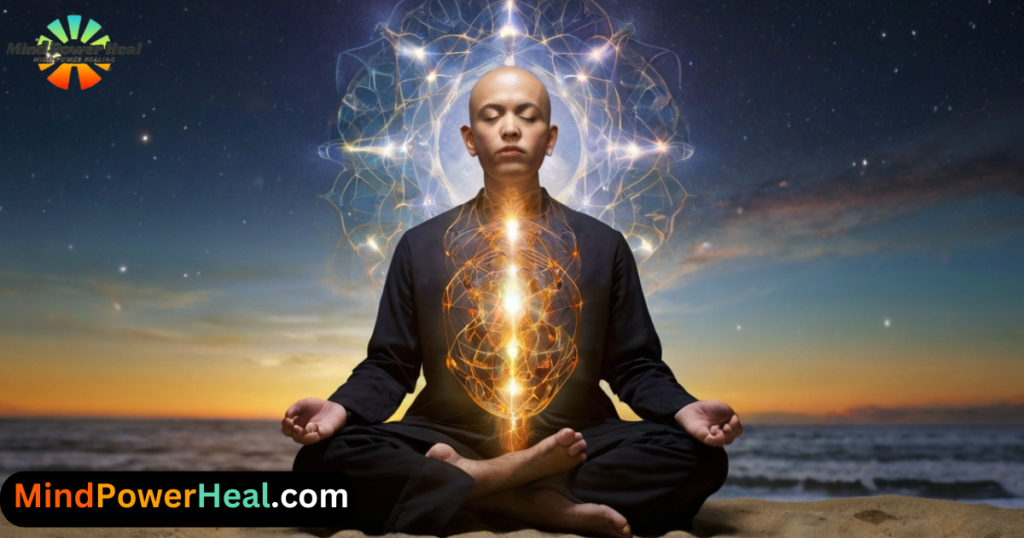
Definition of Mind Power Healing
Mind power healing is a holistic approach to psychological well-being that integrates mental, emotional, and spiritual practices. It is grounded in the belief that the mind holds significant influence over the body’s ability to heal and maintain balance. This practice encompasses various techniques, including visualization, meditation, affirmations, and other cognitive-behavioral strategies, to harness the mind’s power for therapeutic purposes.
The origins of mind power healing can be traced back to ancient civilizations, where philosophers and healers recognized the interconnection between mind and body. Historical figures such as Hippocrates, the father of medicine, and Paracelsus, the Swiss physician, acknowledged the role of mental states in physical health. Over time, various philosophical and spiritual traditions, including Buddhism, Hinduism, and Taoism, have contributed to the development of mind power healing practices.
In the modern era, mind power healing has evolved through contributions from key figures in psychology and alternative medicine. Sigmund Freud’s exploration of the unconscious mind, Carl Jung’s theories of the collective unconscious, and Carl Rogers’ humanistic approach have all influenced contemporary mind power healing techniques. Additionally, the work of pioneers such as Louise Hay and Deepak Chopra has popularized the concept of self-healing through positive thinking and mindfulness.
Today, mind power healing is increasingly relevant in addressing psychological well-being. As mental health issues such as anxiety, depression, and stress become more prevalent, individuals seek holistic and integrative approaches to healing. Mind power healing offers a complementary method to traditional psychotherapy and medication, emphasizing self-empowerment and proactive mental health care. By fostering a deeper understanding of the mind-body connection, mind power healing encourages individuals to take an active role in their psychological well-being, promoting a balanced and fulfilled life.
Concept of Spiritual Treatment in Healing Psychological Diseases
Spiritual treatment has gained recognition as a complementary approach to healing psychological diseases. Unlike conventional methods, spiritual treatment emphasizes holistic healing, addressing not just the mind, but also the soul and spirit. Practices such as meditation, prayer, and energy healing are central to this approach, offering a unique pathway to psychological well-being.
Meditation, for instance, is widely used for its profound effects on mental health. It involves focusing the mind and eliminating distractions, which can help reduce stress, anxiety, and depression. Studies have shown that regular meditation can lead to significant improvements in emotional regulation and overall mental resilience. Similarly, prayer is another spiritual practice that can foster a sense of peace and connection, potentially alleviating feelings of isolation and despair.
Energy healing, including techniques such as Reiki and chakra balancing, is another aspect of spiritual treatment that has been found beneficial for psychological health. These practices are based on the belief that the body has an energy field that can be manipulated to promote healing. By addressing energy imbalances, individuals can experience reductions in symptoms of anxiety, depression, and other psychological disorders.
The interplay between spirituality and psychology is a critical area of study. Research suggests that spiritual beliefs and practices can significantly influence psychological health, providing individuals with a sense of purpose, hope, and meaning. For example, spiritual insights gained through practices like mindfulness can lead to greater self-awareness and emotional balance, contributing to the healing process.
Incorporating spiritual treatment into psychological care can offer a more comprehensive approach to mental health. By integrating these practices, individuals can achieve a balanced state of well-being that encompasses both psychological and spiritual dimensions. This holistic perspective underscores the importance of considering the spiritual aspects of healing in the pursuit of psychological health.

Common Psychological Diseases Resolvable with Mind Power Healing
Mind power healing has emerged as a promising approach to address a range of psychological diseases. This technique leverages the intrinsic power of the mind to promote healing and well-being. Among the common psychological conditions that can benefit from mind power healing are anxiety, depression, stress-related disorders, addiction, and post-traumatic stress disorder (PTSD).
Anxiety disorders, which affect millions worldwide, often manifest as excessive worry, nervousness, and fear. Through mind power healing, individuals can learn to reframe their thought patterns and reduce the intensity of their anxiety. Techniques such as meditation, visualization, and cognitive restructuring are particularly effective in managing anxiety symptoms.
Depression, characterized by persistent sadness and a lack of interest in activities, is another condition where mind power healing shows significant promise. By focusing on positive thinking and mindfulness, individuals can alter their mental state and foster a more optimistic outlook. Strategies like affirmations and guided imagery can help shift negative thought patterns, promoting a better mental and emotional balance.
Stress-related disorders, including chronic stress and burnout, are increasingly prevalent in today’s fast-paced world. Mind power healing offers tools to manage and alleviate stress by enhancing mental resilience and emotional regulation. Practices such as deep breathing exercises and progressive muscle relaxation are valuable in reducing the physiological and psychological impacts of stress.
Addiction, a complex condition characterized by compulsive substance use or behaviors, can also be addressed through mind power healing. Techniques that focus on enhancing self-control, building motivation, and changing behavioral patterns are integral to overcoming addiction. Mindfulness and self-hypnosis are particularly effective in breaking the cycle of dependency.
Post-traumatic stress disorder (PTSD) arises from exposure to traumatic events and can severely impact daily functioning. Mind power healing techniques, including trauma-focused cognitive-behavioral therapy and EMDR (Eye Movement Desensitization and Reprocessing), help individuals process traumatic memories and reduce PTSD symptoms. These methods facilitate emotional healing and improve overall psychological well-being.

In summary, mind power healing offers a versatile and effective approach to addressing a range of psychological diseases. By harnessing the power of the mind, individuals can achieve significant improvements in their mental health and overall quality of life.
Anxiety Disorders
Anxiety disorders encompass a range of mental health conditions characterized by intense, excessive, and prolonged worry and fear about everyday situations. Among the most prevalent are Generalized Anxiety Disorder (GAD), Panic Disorder, and Social Anxiety Disorder. These conditions significantly impact the daily lives of those affected, often leading to physical symptoms such as increased heart rate, sweating, and fatigue.
Generalized Anxiety Disorder is marked by chronic, exaggerated worry about various aspects of life without a specific focus. Panic Disorder involves sudden, intense episodes of fear known as panic attacks, which can occur unexpectedly. Social Anxiety Disorder, on the other hand, is characterized by an intense fear of social situations and being judged or scrutinized by others.
Mindfulness and meditation have emerged as powerful tools in managing anxiety symptoms. Mindfulness involves staying present and fully engaging with the current moment, which can help disrupt patterns of worry and fear. Meditation practices, particularly those focusing on breath awareness and body relaxation, can reduce the physiological symptoms of anxiety, such as rapid heartbeat and muscle tension.
Spiritual practices, including yoga and prayer, also play a significant role in anxiety management. Yoga combines physical postures, breathing exercises, and meditation to foster a sense of calm and well-being. Prayer, whether part of a religious practice or a personal spiritual routine, can provide comfort and a sense of connection to a higher power, which many find soothing in times of anxiety.
Real-life examples highlight the effectiveness of these methods. For instance, a study participant with GAD reported a significant reduction in anxiety symptoms after incorporating daily mindfulness meditation into their routine. Similarly, individuals with Panic Disorder have found that regular yoga practice helps manage panic attacks by promoting relaxation and mental clarity. Case studies on social anxiety demonstrate that combining mindfulness with social skill training can improve social interactions and reduce anxiety.
By integrating these practices into daily life, individuals with anxiety disorders can find relief and improve their psychological well-being, leading to a more balanced and fulfilling life.

Depression
Depression is a pervasive mental health condition that affects millions of individuals globally. Characterized by persistent feelings of sadness, loss of interest in activities, and an overall decline in daily functioning, depression can significantly impair one’s quality of life. Understanding depression involves recognizing its various manifestations, including emotional, cognitive, and physical symptoms. It is essential to approach depression holistically, integrating psychological, spiritual, and practical strategies to foster healing and well-being.
One effective technique in combating depressive symptoms is the use of positive affirmations. Positive affirmations are simple, yet powerful statements that individuals can repeat to themselves to counter negative thoughts and beliefs. By consistently reinforcing positive beliefs, individuals can gradually reshape their mindset, promoting a more optimistic outlook. Visualization, another useful technique, involves creating mental images of desired outcomes or peaceful scenarios. This practice can enhance emotional well-being by providing a mental escape from distressing thoughts and fostering a sense of hope and motivation.
In addition to these psychological strategies, spiritual guidance plays a crucial role in the recovery from depression. This might involve seeking support from religious or spiritual communities, engaging in meditation or prayer, or exploring one’s spiritual beliefs and values. Spiritual guidance can offer comfort, purpose, and a sense of connection, which are vital components in the healing process. Inner healing, on the other hand, focuses on addressing unresolved emotional wounds and traumas that may contribute to depressive symptoms. Techniques such as journaling, therapy, or engaging in creative expression can aid in this process, allowing individuals to process and release pent-up emotions.
For those seeking practical steps to manage depression, several resources are available. Professional therapy, whether cognitive-behavioral, psychodynamic, or other approaches, can provide invaluable support and tools for coping. Online support groups and mental health apps can offer additional assistance and community. Regular physical activity, a balanced diet, and sufficient sleep are also fundamental in maintaining mental health. By combining these techniques and resources, individuals can create a comprehensive plan for managing depression and enhancing their psychological well-being.
Stress-Related Disorders
Chronic stress is a pervasive issue that can significantly impact mental health, manifesting in various stress-related disorders. These disorders include anxiety, depression, and post-traumatic stress disorder (PTSD), each presenting unique challenges but sharing a common root in unmanaged stress. Prolonged exposure to stress can lead to a state of constant hyperarousal, affecting both the mind and body. Symptoms such as irritability, fatigue, insomnia, and cognitive difficulties often emerge, hindering daily functioning and overall well-being.
One effective approach to mitigating the adverse effects of chronic stress is through Mindfulness-Based Stress Reduction (MBSR). MBSR is a structured program that employs mindfulness meditation to cultivate awareness and reduce stress. By focusing on the present moment and acknowledging thoughts and feelings without judgment, individuals can break the cycle of stress reactivity. Regular practice of mindfulness has been shown to decrease symptoms of anxiety and depression, improve emotional regulation, and enhance overall psychological resilience.
In conjunction with MBSR, incorporating spirituality into stress resilience practices can offer additional benefits. Spirituality, whether through religious practices or a personal sense of connection to a higher purpose, provides a foundation for inner strength and peace. Engaging in spiritual practices such as prayer, meditation, or even spending time in nature can foster a sense of calm and perspective, enabling individuals to navigate stress with greater ease.
To enhance stress management skills, consider the following strategies: establish a consistent mindfulness practice, integrate spiritual routines into daily life, and seek support from a community or mental health professional. Additionally, maintaining a balanced lifestyle with regular physical activity, adequate sleep, and healthy nutrition can further bolster stress resilience. By adopting these approaches, individuals can effectively manage stress, reducing its impact on mental health and promoting psychological well-being.

Addiction
Addiction manifests as a chronic, often relapsing disorder characterized by compulsive substance use or behavior despite harmful consequences. At its core, addiction is not merely a matter of physical dependency but is deeply rooted in psychological processes. Emotional traumas, stress, and underlying mental health conditions often contribute to the cycle of addiction, making it a complex issue that requires a multidimensional approach to treatment.
Holistic approaches to addiction recovery emphasize the mind-body-spirit connection, recognizing that healing must occur on multiple levels to achieve lasting recovery. These approaches often integrate traditional therapies with alternative practices to address the mental, emotional, and spiritual aspects of addiction. Techniques such as mindfulness meditation, cognitive-behavioral therapy (CBT), and yoga have shown promising results in reducing cravings and promoting mental well-being.
Spiritual practices play a crucial role in addiction recovery by fostering a sense of purpose, connection, and inner peace. Practices like guided imagery, prayer, and spiritual counseling can help individuals connect with a higher power or their inner selves, providing a source of strength and resilience. These practices can be particularly effective in relapse prevention by helping individuals develop coping mechanisms and a deeper understanding of their triggers.
An integrative treatment plan that combines medical intervention, psychological support, and spiritual practices offers the most comprehensive approach to addiction recovery. This kind of plan should be tailored to the individual’s needs, incorporating elements such as detoxification, therapy, support groups, and lifestyle changes. By addressing the root causes of addiction and fostering a holistic sense of well-being, individuals are better equipped to achieve and maintain long-term recovery.
Post-Traumatic Stress Disorder (PTSD)
Post-Traumatic Stress Disorder (PTSD) is a mental health condition that arises after experiencing or witnessing a traumatic event. Symptoms of PTSD can be debilitating and include flashbacks, nightmares, severe anxiety, and uncontrollable thoughts about the event. Common triggers for PTSD sufferers vary widely and can include loud noises, specific locations, or even certain smells that remind them of the traumatic experience.
Healing trauma requires a multifaceted approach. Mindfulness practices have shown promise in helping individuals manage PTSD symptoms. Mindfulness involves staying present in the moment and can be particularly effective in reducing anxiety and intrusive thoughts. Techniques such as mindful breathing, meditation, and body scanning help sufferers develop a greater awareness of their thoughts and emotions, enabling them to respond to triggers more calmly.
In addition to mindfulness, spiritual healing practices like guided imagery and energy healing offer avenues for emotional release and recovery. These practices aim to restore a sense of peace and balance by addressing the emotional and spiritual aspects of trauma.

An integrative approach to PTSD recovery combines traditional psychological treatments with mind power healing techniques. Cognitive Behavioral Therapy (CBT) and Eye Movement Desensitization and Reprocessing (EMDR) are well-established methods for treating PTSD. When these are complemented with mindfulness and spiritual healing practices, the result is a more holistic path to recovery. This combination not only addresses the psychological impacts of trauma but also fosters emotional and spiritual well-being.
By embracing a comprehensive treatment plan that includes both conventional therapies and mind power healing techniques, individuals with PTSD can find a well-rounded path to healing. This integrative approach offers a more complete recovery, promoting not just psychological well-being, but overall mental and emotional health.
Benefits of Mind Power Healing in Psychological Treatment
Mind power healing offers a comprehensive approach to psychological well-being, addressing mental, emotional, and spiritual dimensions. This holistic method emphasizes the interconnectedness of these aspects, fostering a balanced and harmonious state of being. By integrating mind power healing into psychological treatment, individuals can experience a profound transformation that extends beyond symptom relief, promoting overall mental health and vitality.
One of the primary benefits of mind power healing is personal empowerment. This approach encourages individuals to take an active role in their healing journey, enhancing self-awareness and self-control. By cultivating a deeper understanding of their thoughts, emotions, and behaviors, individuals can develop healthier coping mechanisms and make more informed decisions. This empowerment fosters a sense of agency and autonomy, which is crucial for long-term psychological well-being.

Mind power healing also contributes to building long-term resilience through spiritual practices. Techniques such as meditation, visualization, and affirmations help individuals connect with their inner selves, fostering a sense of inner peace and stability. These practices not only provide immediate relief from stress and anxiety but also equip individuals with the tools to navigate future challenges more effectively. By strengthening their spiritual foundation, individuals can maintain a resilient mindset in the face of adversity.
Moreover, mind power healing can complement traditional therapy by providing additional support and enhancing the effectiveness of conventional treatments. Integrating mind power techniques with psychotherapy, cognitive-behavioral therapy, or medication can create a more comprehensive treatment plan. This integrative approach addresses the root causes of psychological issues, facilitating deeper healing and more sustainable outcomes. As a result, individuals can experience improved mental health, enhanced emotional regulation, and a stronger sense of well-being.
In conclusion, mind power healing offers significant benefits in psychological treatment by promoting a holistic approach, personal empowerment, long-term resilience, and complementing traditional therapies. This comprehensive method can lead to profound and lasting improvements in mental, emotional, and spiritual health, paving the way for a more balanced and fulfilling life.

